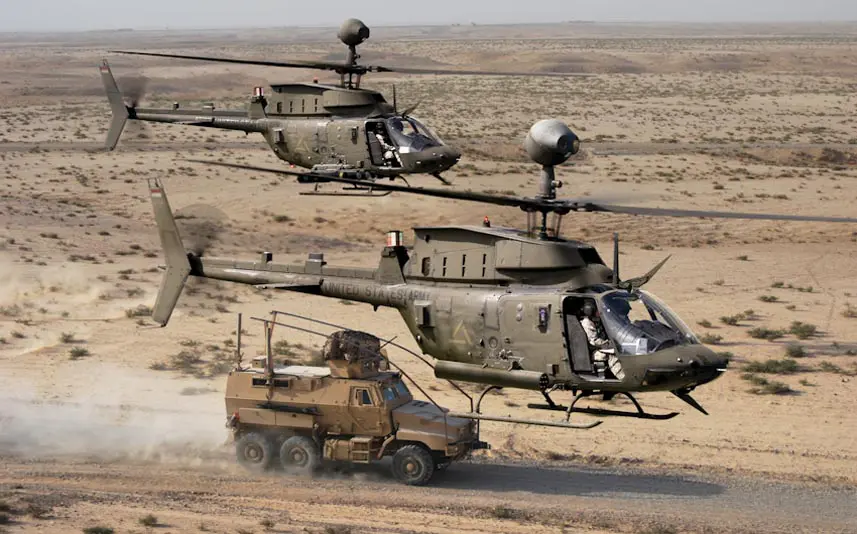Posted on April 28, 2015
By Ray Panko | [email protected] | Pearl Harbor Aviation Museum
Big Eyes and Sharp Teeth

“Wingman.” Photo taken by Spc. Brady Pritchett. Won the U.S. Army Aviation Photo of the Year award in 2014. Source: U.S. Army Aviation Facebook page.
| Type | Scout/Observation Helicopter |
| Manufacturer | Bell Helicopter |
| Date Deployed | 1969 |
| Number Built | 2,200 |
Background
If you were a pilot in the air cav and you were killed, you were probably a scout pilot. That’s the way it was. Sometimes, it was a slick pilot. Very rarely a cobra pilot. Usually a scout pilot.
Mills and Anderson, p. 240.
The Kiowa was a small and agile scout/observation helicopter. Introduced in 1969, OH-58As joined divisional reconnaissance squadrons in Vietnam. In visual reconnaissance, a Kiowa flew at tree level or lower, looking for the enemy. If it found them — often by taking fire — the crew called a helicopter gunship orbiting above. If necessary, they then summoned the squadron’s “aero-rifle” platoon to place troops on the ground. Sometimes, they even called in artillery or fixed-wing strikes. In the 1st Cavalry Division (airmobile), the reconnaissance squadron was the 1st Squadron of the 9th Cavalry Regiment. Although it had only about an eighth of the 1st Cav’s fighting forces, the 1/9 accounted for half of the enemy killed by the division.
The ultimate version of the little scout is the OH-58D Kiowa Warrior. By the 1980s, enemy ground fire had become too powerful for up-close-and-personal scouting. The Kiowa Warrior, an OH-58D upgrade introduced in 1991, was built to do armed reconnaissance in hostile environments. Its two-person crew could be armed with an impressive choice of rockets, missiles, and heavy machine guns. Thanks to its mast-mounted-scope, the Kiowa Warrior could shield its fuselage under obstacles, yet look for the enemy day and night. If it discovered them, it could laser designate them as targets for its hellfire missiles.
In 2015, the Army retired its Kiowa fleet. There was no direct replacement. Instead, the Army called back many AH-64 Apache gunships from Army National Guard units to fill the gap.
Characteristics
| Reference Model | OH-58D Kiowa Warrior |
| Type | Armed Reconnaissance Helicopter |
| Crew | 2 |
| Length | 41 ft. 2 in. (12.9 m) |
| Height | 12 ft. 11 in. (3.9 m) |
| Rotor Diameter | 35 ft. 35 feet (10.7 m) |
| Number of Blades | 4 |
| Empty Weight | 3,500 lb (1,588 kg) |
| Maximum Gross Weight | 5,500 lb (2,495 kg) |
| Propulsion | One Rolls-Royce T703-AD-700A (Allison 250-C30R3) turboshaft engine |
| Shaft Horse Power | 650 hp (485 kW) |
| Maximum Air Speed | 149 mph (240 kph) |
| Cruise Speed | 109 mph (176 kph) when armed |
| Service Ceiling | 15,000 ft (4,575 m) |
| Range | 161 miles (140 nautical miles/259 km) |
| Defense Suite | Infrared seeker /jammer; radio and laser warning detectors, inherent infrared suppression, flares |
| Surveillance Mast | High-resolution, low-light TV camera, laser rangefinder for armament guidance, IR thermal imaging sensor for navigation and night target acquisition. |
| Weapons | Universal weapons pylons for LAU-68 pods of seven Hydra 70 mm folding fin aerial rockets, M3P .50-caliber (12.7 mm) machine guns, AGM 114 Hellfire missiles. |
References
Mills, Hugh L., Jr. with Anderson, Robert A. (1992). Low Level Hell: A Scout Pilot in the Big Red One, Novato, California: Presidio.
Shrader, Lynn (2010), Real Cav, Georgetown, TX: Katy Crossing Press.
Swopes, Bryan R. (2014) http://www.thisdayinaviation.com/tag/t703-ad-700a/.
Mutza, Wayne (2010). Helicopter Gunships: Deadly Combat Weapons Systems, North Branch, MN: Specialty Press
Photographs

Source: Bell Helicopters.

Source: Bell Helicopters.

Source: Bell Textron Helicopters.

Bell Kiowa OH-58A at the United States Army Aviation Museum, Dothan, Al.

An OH-58D Kiowa decelerates as it approaches trees during gunnery exercises at Fort Lewis, Wa. A .50-caliber machine gun is mounted on the left side of the helicopter. (U.S. Army)

